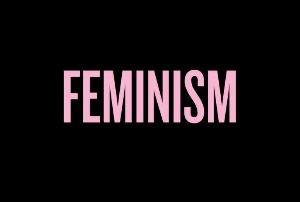There is a new social dilemma: some gender activists are calling for the flip of the narrative of gender role in our society. It is a quest for a change in the social concept towards the ‘modern day career woman’ – who is said to have worn pants and has supposedly entered the roles and responsibilities of a man.
Of course, there is a fundamental wrong in this cause of action e.g. in a disquieting case regarding a career woman cooking for the husband as slavery. The flaw of feminism, perhaps, goes so far as denying biological differences and promoting male normative goals as the gold standard for women; and this does not sit well in the minds of many.
Historical facts and ideologyname
Indeed it can be said that in every society there is to be an ideology. It is an ideology which gives an unfettered support for a social paradigm. An idea in pursuit of gender equality as a form of women’s right is feminism. The goal of feminism is to achieve gender equality in arriving at social justice. However, it is important to note that equality does not generally consider justice. Justice is about making equitable appropriations towards fairness even in light of inequality. In the legal maxim, it is said that equity delights in equality; meaning that, for there to be justice there ought to be equity.
The term feminism, as a western sociological ideology was pioneered by Susan B. Anthony, who played a pivotal role in white women’s suffrage right and other social reforms. The feminist movement traditionally was a middle class white women’s movement for equal rights as men, such as the right to vote and equal pay at work. Now feminism is a movement full of women who seem to think that their ability to push a baby out of their uterus entitles them equal and better opportunities than men.
The reality is this: there are generalities in everything but the particularities are different. There are problems women face all over world, but they are not the same in every society. Here in Ghana, a group of feminists are using a completely wrong approach to fight very important social problems. By and large, it seems these maidens have not passed the test of womanhood as an African concept of dealing with women’s problems – which is a problem of society not a gender issue.
Womanismname
According to a notable African-American poet and activist, Alice Walker, she said: “womanist is to feminist as purple is to lavender”. This was her reaction to the realization that “feminism” does not encompass the perspectives of African women. Women in our African society have their sole rights and responsibilities, nevertheless, they never do anything alone, and whatever they accomplish in society is by collective efforts of men.
In fact, we must learn to unlearn to remove the kink of the western philosophy from our minds. If, supposedly, a wife is mistreated by her husband and she feels she is being abused, then that is a problem – not a gender issue to divide and conquer. More so, it is not a basis for alienation but rather a question of complementarity – where both men and women seek to improve each other’s qualities.
With the recent gang rapes and defilements that seem to be looming our society, are we approaching the crises from the gender point of view? Maybe some of us need to be reminded that under our Ghanaian laws a man cannot be raped. It is not my intention to equalize the quandaries of men and women but to emphasize that there are oppressive structures in our society for both men and women.
More importantly, a difference between Feminism and Womanism is that some feminists present men as the anathema in their fight for equality in a patriarchal world. It can be seen as a separatist movement, unlike womanism that emphasizes women’s relationships with men and the importance of family who are “committed to the survival and wholeness of entire people, male and female”, per Alice Walker in her book “Colour Purple”. Womanism not only fights for the gender equality but for justice against racial oppression against African men and women since time immemorial.
Taking a trip down memory lane, from the epoch of our ancient civilizations, we are not oblivious of women like Nefertari, Neithhotep, Hypatia, Makare Hatsheput, Makeda, Tiye, and to cast the pyramid, Kandake (circa 332 BC) who humiliated Alexander the Greek and his army. In the era of the struggle against African colonization and slavery, heroines like Nzhinga, Tinibu, and Yaa Asantewaa were the citadel against colonial oppression. Today’s Winnie Mandela, Miriam Makeda and Funmilayo Ransome-Kuti of blessed memories, Angelique Kidjo, Theodore Woods, Henrietta Mensah Bonsu, Lucy Quist and the thousands of market women who have ambitions, who have succumbed the problems of society and are successful, and who are not jumping into the fray to antagonize men, are the icons of womanism.
Conclusionname
With hindsight, it appears that some of these feminists are misguided and are bereft of the experiential factors that had engendered the social problems of both men and women today, and are latching on the idea of feminism to achieve a certain ‘perfect’ context of society which is unworldly.
Society is always evolving to suit its dynamic settings, and out of the evolution would emerge new challenges. We seem to be rushing and prescribing alien standards which do not conform to the structures of our social institutions, i.e. family and marriages, and which are stampeding the processes of their transformation. It is said that a tree with no roots can end up in any soil. We need to keep our African identity while we seek to make changes in order to improve.
Opinions of Wednesday, 7 February 2018
Columnist: Michael Sumaila Nlasia















